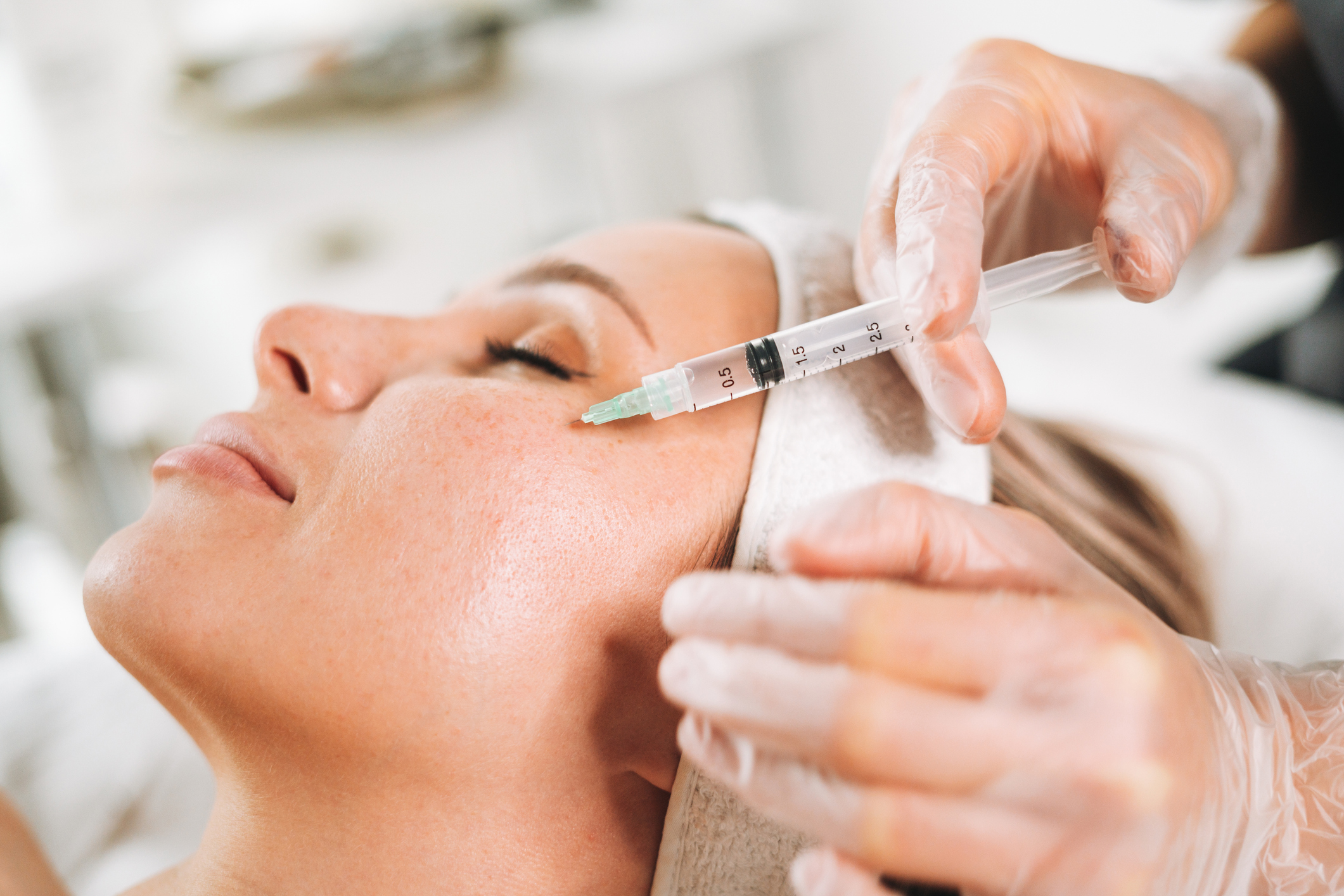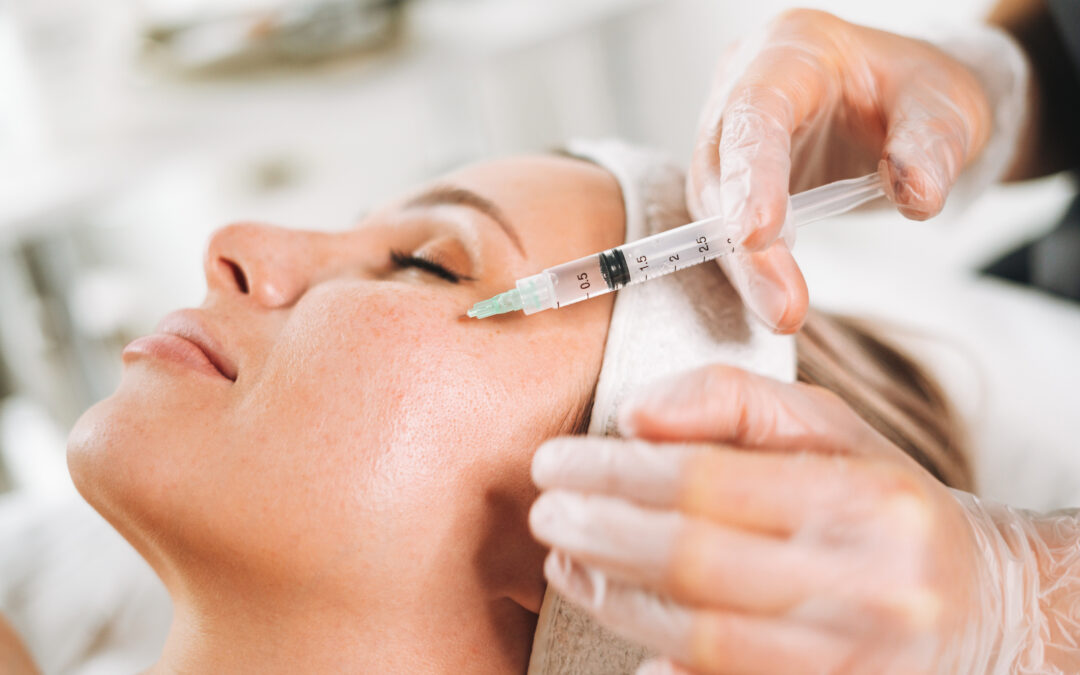Getting wrinkle injections? This could stop them working
According to the experts…
Words by Rachel Martin

The beauty industry is changing. In-clinic tweakments such for injectables that help reduce the appearance of wrinkles are now as par for the course as a lash lift or a brow tint and according to a recent study by PolicyBee, in the UK alone the non-invasive aesthetics industry is worth £3.2 billion.
While booking in for a crows- feet-freezing top-up on your lunch break has never been easier for the glow-obsessed, with injectables’ rising popularity comes increased scrutiny. The injectables market includes brand such as Botox, Azzalure, Relphydess and others. As more and more people enter into their umpteenth year of regular injectable appointments one question in particular is doing the rounds – can you become immune to them?
Many long-time devotees are starting to notice that their go-to wrinkle relaxer just doesn’t perform like it used to. Why? Is this resistance a symptom of overuse?
Here, Grazia beauty panellist and founder of the Soni Clinic, Dr Ash Soni, weighs in.
First, a quick refresher: ‘Injectables like Botox are a neuromodulator that works by targeting a specific muscle to relax it,’ explains Dr Soni, ‘neuromodulators work by blocking the release of a neurotransmitter known as acetylcholine – this effect causes temporary relaxation of the muscle. Injectables have many uses and can be used to soften dynamic lines and wrinkles, help with excess sweating, and assist with issues like teeth grinding, to name a few.’
Unlike the instant plumping prowess of filler, for example, neuromodulator injections don’t always offer instant results, often taking up to fourteen days for the full skin-smoothing effects to kick in. But for some, those two weeks come and go without serving up any discernible results.
‘Resistance is possible,’ confirms Dr Soni, ‘this occurs when a patient doesn’t respond to neuromodulator injections, or they don’t respond as well as they used to. If your results wear off much sooner than the average time injectable is supposed to last, you may be developing resistance.’
So yes, while your appointments may once have left you with skin smoother than a toddler’s, it turns out you can develop a reduced responsiveness to these routine injectables over time. This, says Dr Soni, could be down to several factors.
‘People can develop neutralising antibodies to injectables.’
‘People can develop neutralising antibodies against the injectables,’ he explains. ‘These antibodies may form in response to the botulinum toxin itself, or to the added proteins in the formula. It’s also thought that with higher doses being used more frequently, the risk of developing resistance increases.’ A 2023 study estimated resistance occurs in around 0.5% of patients – so while rare, gradually developing a resistance is still very much within the realms of possibility.
Dr Soni also notes a connection between resistance and the levels and frequency of injections. ‘A good injector will advise you to wait at least three months between treatments,’ he says. ‘It is thought that frequent appointments – or consistently too high a dosage- could increase your risk of developing resistance.’
That said, if you’re confident in your practitioner’s skills and credentials and still find your response isn’t what it used to be, there are other options. One being switching to a different brand of neuromodulator.
‘There are many brands available, as well as Botox – which is a brand name by the way – there is Azzalure by Galderma, which I use in my clinic. And there’s an exciting new product on the horizon – Relfydess – which is the purest neuromodulator to date. It’s expected to become available in the UK soon and has shown a faster onset of action and a longer duration – up to six months.’

Another option? Take a break. ‘It’s always a good idea to pause treatments for a few months to allow any neutralising antibodies to clear from the system,’ says Dr Soni. ‘This gives your body a chance to reset and may help restore your responsiveness.’
While the possibility of injectable immunity may be a cause for concern among devotees, this pending dilemma pales into insignificance when compared to continued lack of regulation within the industry. According to UCL researchers, a staggering 68% of cosmetic practitioners administering injectables are not medically qualified doctors.
‘It’s so important to seek out a highly experienced provider,’ impresses Dr Soni, ‘do your research and find someone with a deep knowledge of facial anatomy and extensive experience with injectables. Don’t hesitate to ask for testimonials and before-and-after photos. And remember, a low price often reflects the experience of the provider and the quality of the products being used.’ Too good to be true? It probably is. Always look potential practitioners up on saveface.co.uk, a government approved register of accredited professionals.
The takeaway? Injectable resistance is real – but it’s not a foregone conclusion.. ‘It’s rare, says Dr Soni. ‘I’ve personally had Botox for almost 13 years and have never experienced resistance and in my clinical experience, I’ve only seen a handful of mild resistance cases.’ If you’re concerned about becoming immune, then don’t stress – there are smart steps you can take: space out your appointments, with an experienced and qualified injector, opt for lower dosages, and consider switching brands.
Photo: Getty

